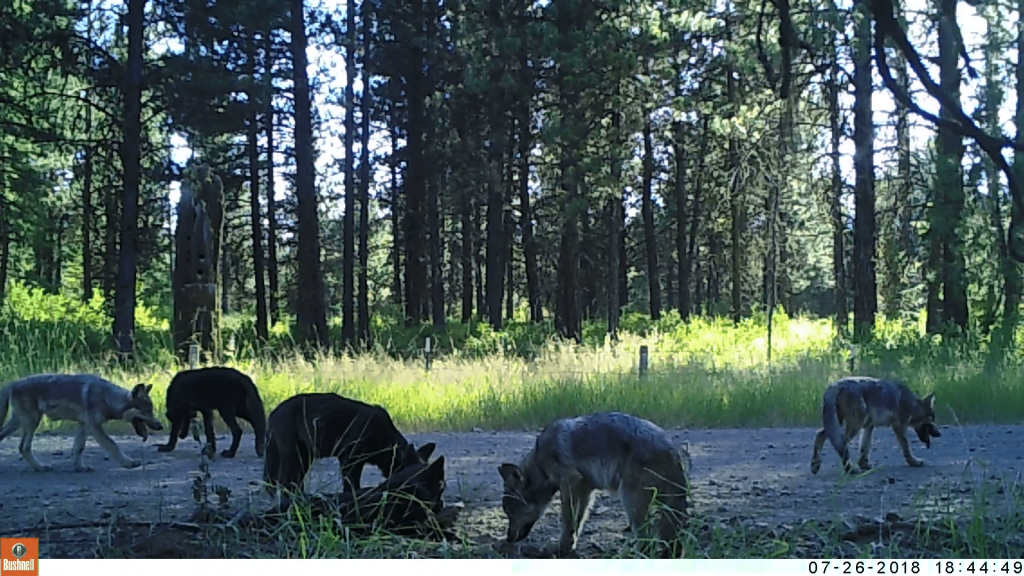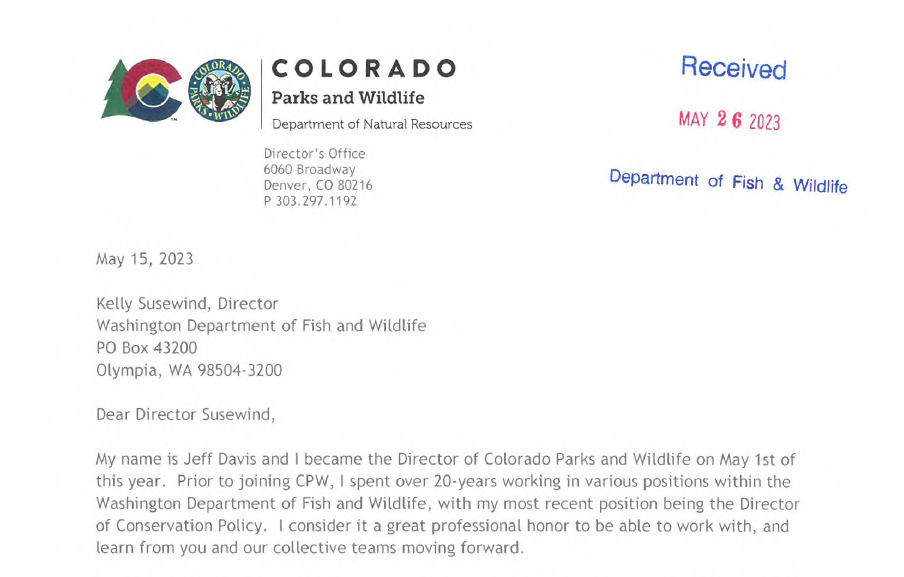
Colorado Wants Washington Wolves
Colorado has formally requested to begin discussions with Washington about donating wolves for the Rocky Mountain state’s voter-mandated wolf reintroduction, and a Fish and Wildlife Commission subcommittee will take up the topic later this month.

A mid-May letter from new Colorado Parks and Wildlife Director Jeff Davis to his former boss, WDFW’s Kelly Susewind, asks “to begin the discussion to determine if your state would be a willing donor, and if so, embark on the necessary process to secure the arrangement.”
Davis states that CPW plans to translocate from 10 to 15 wolves a year for three to five years and is also reaching out to the states of Oregon, Idaho and Montana for animals, which he said would only come from federally delisted areas. Wyoming’s governor is “opposed” to sending any wolves to his neighbor.
Yesterday this magazine filed a PDR for the communication from Colorado, and overnight – apparently independent of that request-– WDFW posted Davis’s letter.
Washington has no shortage of wolves in the eastern third of the state, where they were removed from Endangered Species Act protections in 2011 and are managed by WDFW and tribal authorities. There were at least 27 known packs on federal, tribal, state and private lands there at the end of 2022, and since then two more packs have been identified – Scatter, which is responsible for several confirmed and probable depredations at the K Diamond K Guest Ranch south of Republic, including a miniature donkey that was attacked in April, recovered, and then killed in May; and the WA139 group in Asotin County, confirmed to have killed at least two calves and probably another in May.
Colorado will probably not want those livestock-attacking wolves, even if Washington producers would love to unload them. Five other packs in the northeast and southeast corners of the state also have depredations over the last 10 months, likely making them untranslocatable as well.

Davis’s letter indicates that it hasn’t been determined how many wolves Colorado would need specifically from Washington or the other states, but says that no one state would be the “sole source” for the reintroduction.
Colorado already has a few naturally dispersing wolves, but this project came out of Proposition 114, narrowly passed in November 2020 and directing CPW “to develop and implement a wolf restoration and management plan,” with actual reintroduction “mandated to begin … by December 31, 2023.”
CPW’s management plan and its draft mention Washington as well as Oregon, along with the other Northern Rockies states, as donor sources, but that appears to have been more speculative than nailed down. At least until Davis’s letter.
The Washington Fish and Wildlife Commission’s Wildlife Committee is set to discuss CPW’s request at its June 22 meeting in Seattle, where WDFW’s periodic status review of wolves that proposes to downlist the species to sensitive-protected is also on the agenda.
In the lead-up to the latter, Washington Wildlife First will be “howling for change” at WDFW and the commission with a series of events in hopes of driving metro residents to next week’s meetings, which also includes public comment on the commission’s controversial draft Conservation Policy. The Rocky Mountain Elk Foundation is urging members to comment on the policy and remind the commission of its legislative mandate, and the value of hunting and hunting-based conservation, and oppose the insertion of a “precautionary principle” into sound, scientifically based wildlife management.
